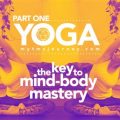Mastering the Art of Yoga Mind Training: A Comprehensive Guide
Yoga mind training is an intricate discipline that goes beyond the physical postures (asanas). While many people focus primarily on the physical benefits of yoga, the mental and psychological training aspects are equally, if not more, important. This article explores yoga mind training from multiple angles, discussing its fundamental principles, different approaches, challenges, and practical implementation for beginners and advanced practitioners alike.
The Fundamentals of Yoga Mind Training
Yoga mind training is the mental counterpart to the physical practice of yoga, designed to strengthen awareness, concentration, and emotional control. It emphasizes developing mindfulness, inner peace, and resilience against stress. Unlike regular mindfulness techniques, yoga integrates mental discipline with bodily movements, deep breathing, and meditative states to train the mind holistically.
Key Components of Yoga Mind Training
- Breath control (Pranayama): The regulation of breath helps control mental states, calming the mind and increasing focus.
- Concentration (Dharana): Concentration practices are essential for enhancing focus and eliminating distractions.
- Meditation (Dhyana): Meditation fosters deeper self-awareness and emotional balance.
- Ethics (Yama and Niyama): The moral and ethical guidelines of yoga cultivate a disciplined mind by promoting positive behavior and self-reflection.
Approaches to Yoga Mind Training: From Beginner to Expert
Yoga mind training offers a spectrum of techniques for practitioners at different levels of experience. Below are the major methods, structured from beginner-friendly to advanced-level techniques.
Beginner-Level Techniques
- Body Scan Meditation: This meditation technique brings awareness to different parts of the body, developing a connection between physical sensations and mental states.
- Breath Focus: Beginners can start by focusing on their breath to cultivate mindfulness and reduce mental clutter.
- Basic Mantra Repetition: Reciting simple mantras helps the mind concentrate and relax.
Advanced Techniques
- Yoga Nidra: Also known as “yogic sleep,” this is a guided meditation technique where practitioners reach a deep state of relaxation while maintaining full awareness.
- Kundalini Meditation: A powerful and complex practice aimed at awakening dormant energy (Kundalini) located at the base of the spine, offering mental and spiritual transformation.
- Advanced Pranayama (Breath Retention): More complex breath control techniques like Kumbhaka are introduced to develop stronger mental focus and endurance.
The Psychological Benefits of Yoga Mind Training
Yoga mind training has a profound impact on mental health. Scientific studies have demonstrated that regular practice can improve emotional regulation, reduce symptoms of anxiety and depression, and enhance overall cognitive performance.
Common Psychological Benefits
- Reduction of stress and anxiety: Pranayama and meditation decrease cortisol levels, helping to combat stress.
- Improved emotional regulation: By practicing non-reactivity through meditation, practitioners become more resilient to emotional stress.
- Enhanced focus and cognitive flexibility: Regular concentration exercises help increase mental acuity and adaptability.
Scientific Evidence Supporting These Claims
Studies from various universities have confirmed the positive psychological impacts of yoga mind training. In one study, participants who practiced yoga for eight weeks showed a significant reduction in stress hormone levels and improved mental focus. Another study highlighted the benefits of meditation in reducing anxiety and depression among individuals with generalized anxiety disorder (GAD).
Challenges and Misconceptions in Yoga Mind Training
While yoga mind training offers numerous benefits, several challenges and misconceptions often hinder practitioners’ progress. Let’s explore these common pitfalls and offer solutions.
Common Misconceptions
- “Yoga is purely physical”: Many people believe yoga is only about physical postures, neglecting the mental training component.
- “Yoga mind training is only for spiritual individuals”: Although rooted in spiritual traditions, yoga mind training can benefit people from all walks of life, including professionals and students.
Proposed Solutions
- Begin integrating small moments of mindfulness and breath awareness into your daily routine, such as taking five deep breaths before starting your day.
- For professionals, practices like pranayama and short meditative breaks can help manage stress during work hours.
Historical Context of Yoga Mind Training
Yoga mind training has deep roots in ancient Indian philosophy and spiritual practices. Its origins can be traced back over 5,000 years to the Indus Valley civilization, where early forms of yoga were practiced as a means of spiritual development and self-discovery. Historically, yoga was primarily seen as a path toward enlightenment, with its mind-training components viewed as essential for achieving higher states of consciousness.
Over time, various yoga schools (such as Hatha, Raja, and Jnana) evolved, each emphasizing different aspects of mind training. For example, Raja Yoga focuses on controlling the mind through meditation, while Jnana Yoga emphasizes intellectual and philosophical contemplation.
Yoga Mind Training in the Modern Context
In the modern world, yoga mind training has gained recognition not only as a spiritual discipline but also as a scientifically backed method for improving mental health and well-being. Corporations and educational institutions have begun incorporating yoga mind training programs to promote stress management and cognitive enhancement.
Examples of Modern Implementation
- Many companies now offer “mindfulness and yoga breaks” during workdays to enhance employee focus and reduce stress.
- Schools and universities have integrated yoga mind training into their curricula to help students manage exam stress and improve focus.
Practical Implementation of Yoga Mind Training
How can one practically implement yoga mind training into their daily life? The following steps outline how both beginners and advanced practitioners can get started:
Step-by-Step Guide for Beginners
- Start with simple breathing exercises: Incorporate five minutes of deep breathing at the beginning or end of your day.
- Progress to guided meditation: Use free resources or apps to practice mindfulness or body scan meditation.
- Introduce mantra repetition: Choose a simple mantra like “Om” or “Peace” to focus your mind during meditation sessions.
Advanced Practices for Experienced Practitioners
- Commit to a regular meditation schedule: Dedicate at least 30 minutes each day to deep meditation or pranayama.
- Challenge yourself with Kundalini or Yoga Nidra: Try these advanced techniques to deepen your mental focus and awareness.
- Integrate mindfulness into all activities: Practice mindfulness not only during yoga sessions but in everyday activities like walking, eating, or even during conversations.
Limitations and Future Research
Despite its numerous benefits, yoga mind training is not a universal solution. The effectiveness of yoga mind training can vary based on individual needs, cultural backgrounds, and psychological conditions. Additionally, more research is needed to explore its long-term impact on cognitive performance and emotional well-being. Future studies could also investigate how yoga mind training could be integrated into treatment plans for mental health disorders like PTSD or ADHD.
Examples of Future Research Directions
- Longitudinal studies measuring the effects of yoga mind training on cognitive aging.
- Clinical trials exploring its effectiveness as a complementary treatment for anxiety and depression.
- Research into the role of yoga in workplace productivity and employee satisfaction.









